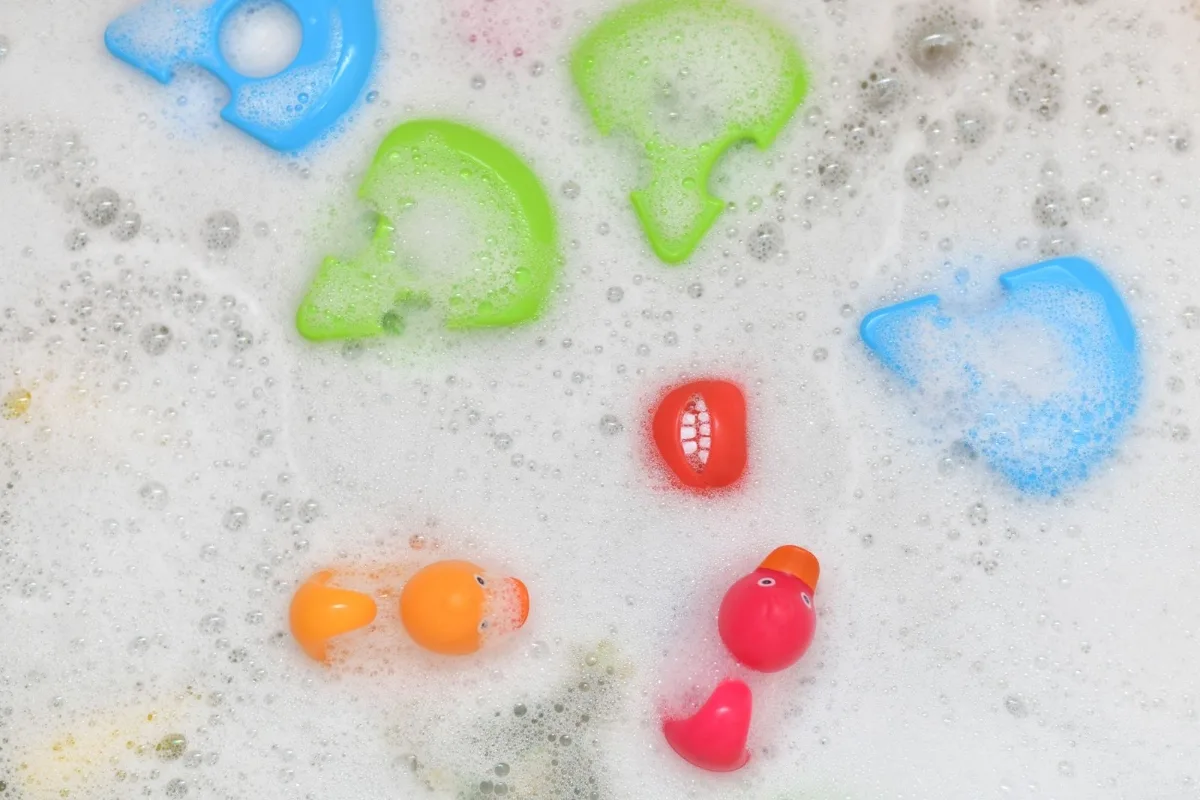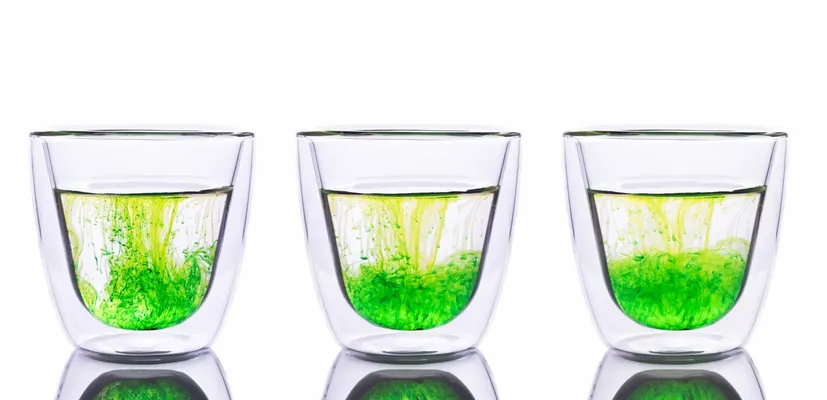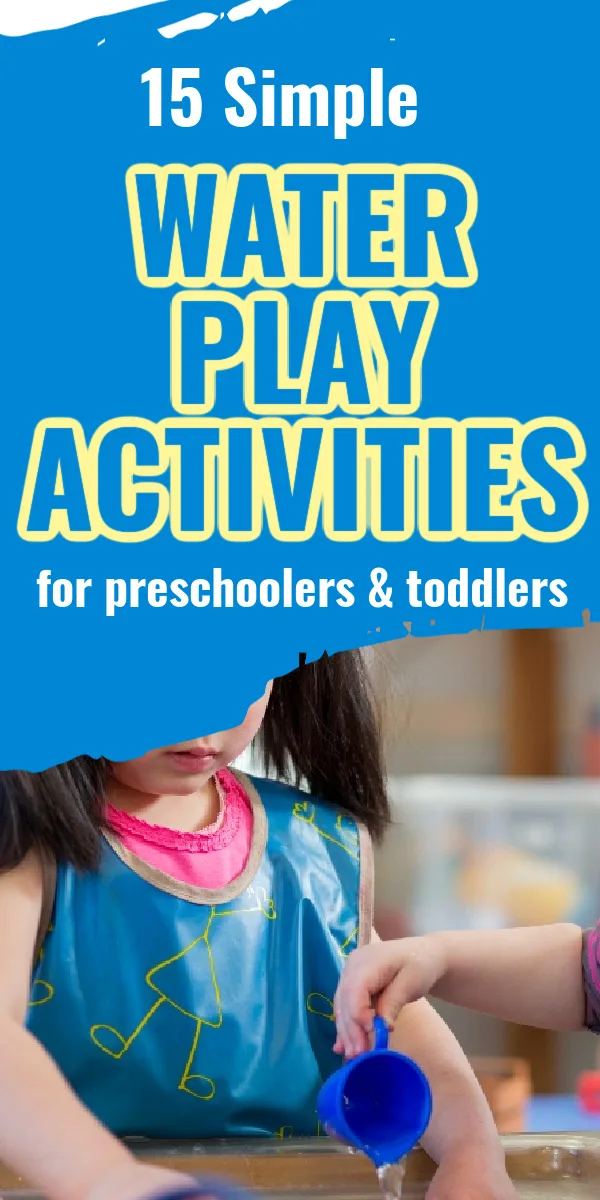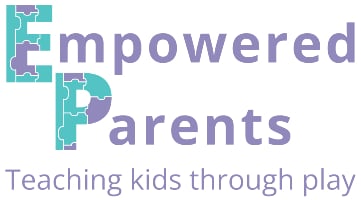Are you looking for a creative way to keep your little ones entertained while fostering their development? Look no further than the magical world of sand and water play!
These water play activities aren’t just about having fun; they also play a crucial role in children’s growth and learning.
What are the Benefits of Water Play?
There are so many benefits of water play, such as:
- Building fine and gross motor skills
- Learning early maths and science skills
- Improving attention span, and more!
Water Play Activities for Toddlers and Preschoolers
Here are 15 fun water play ideas that will delight toddlers and preschoolers.
Whether at home or in the classroom, these engaging ideas provide endless hours of learning, sensory exploration, and pure joy!
Water play can be set up at a water table, a trough, in the bath, or in any large container.

Sensory Play
Fill a basin or trough with water and add objects of different textures for kids to explore.
Add water beads or coloured ice cubes to the water for a tactile experience.
Water Painting
Painting with water can be great for strengthening gross motor skills.
Provide large paintbrushes and a bucket of water for kids to “paint” on surfaces like pavement or walls.
Provide foam brushes, sponges or other tools to paint different effects.
Floating and Sinking
Fill a container with water and let children experiment with objects that float or sink. This can be done in the bath too.
You can use anything – toys, objects like bottle tops and corks, or natural items like leaves and stones.
Encourage them to predict whether the items will float or sink.
Try these floating and sinking activities too.
Water Balloon Games
Kids will love engaging in messy play with water balloons. Set up a water balloon toss or target practice game in the backyard. This is great for developing eye-hand coordination.
Incorporate colours or numbers to make the activity even more educational.
Bathtub Fun
Turn every bath time into an educational water play activity. Here are 18 ideas for fun in the bathtub.

Kitchen Play
Add tools from the kitchen to your water play, such as cups, scoops, funnels, whisks, ice-cube trays, syringes, etc.
Homemade Sprinkler
Make a DIY sprinkler using a plastic bottle with holes poked in it and attach it to a hose. Let kids run through the sprinkler and enjoy the cooling effect.
Young kids will also enjoy immersing the plastic bottle in the water and watching the water pour out of the holes, which teaches them about the scientific properties of water.
Water Obstacle Course
Create a mini obstacle course using buckets, hoses, and other water elements. Include tasks like jumping over streams or crawling under sprinklers.
Colour Mixing
Fill different containers with water and add food colouring to create the three primary colours.
Let children mix the colours and observe the changes.

Here are more simple colour-mixing activities for kids.
Fine Motor Fun
Get children to strengthen their fine motor control and finger muscles by providing pipettes and syringes. They can move the water into small containers or ice-cube trays, or add drops of food colouring (as in the previous activity).
Ice Excavation
Freeze small toys or objects in ice cubes and provide tools for children to “excavate” them.
Discuss concepts like freezing and melting during the activity.
Mud Play
In children’s play, water and sand often go together! Set up a mud kitchen or let kids fill containers of water and take them into the sandpit for some fun sand play.
Bubble Play
Add some drops of liquid soap to the water and teach kids to blow bubbles into the water by using straws.
They will love playing with the bubbles!

Mixing Substances
Have some fun experimenting with how sand changes the properties of certain materials.
Try adding substances like salt, sugar, oil, food colouring, sand, or flour to the water and see which substances dissolve, don’t dissolve, or turn the water into a different consistency.
This is a great way to learn early science concepts.
Water Experiments
Try these simple water experiments with kids to teach them concepts such as solids and liquids, dissolving, floating and sinking, and more.
I hope you’ll enjoy trying out these water play ideas for the early years.
As you can see, setting up water table activities does not need to be complicated – just use whatever resources you have at hand.

